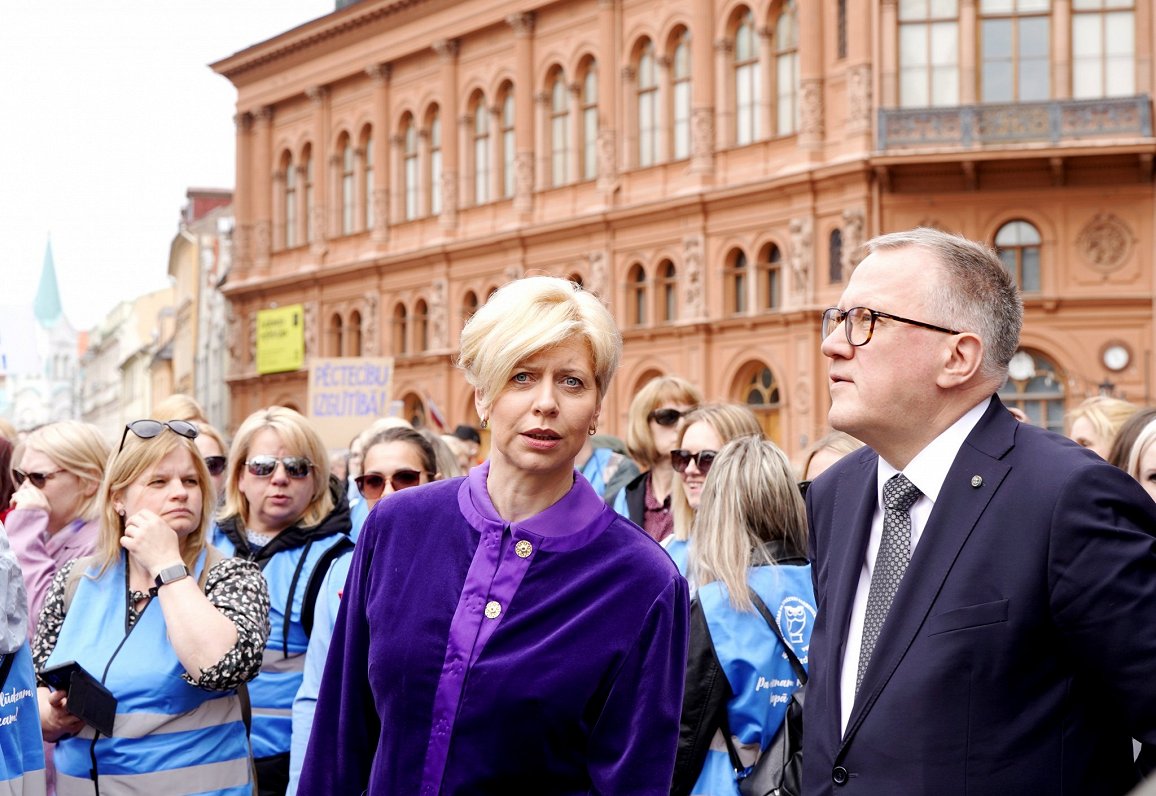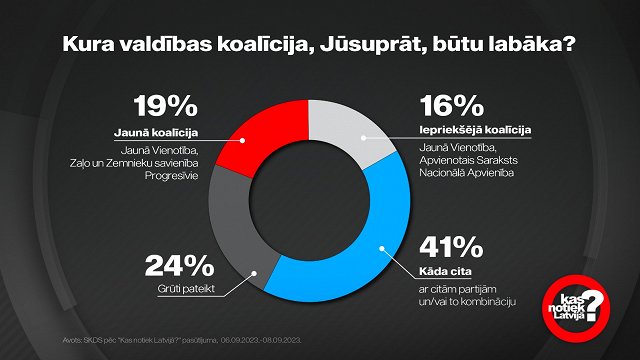Even though parties have yet to agree which of them will be in and which will be out of government, and with no actual plan of action yet drafted, wrangling over ministries is under way – despite parties' insistence last week that it would come only after a workable model was agreed upon, Latvian Radio suggested.
No matter what composition of the coalition is agreed upon, the current division of responsibilities will likely change significantly.
Without naming its sources within the negotiations, Latvian Radio said the Progressives party, currently in opposition, is interested in helming the Ministry of Transport and the Ministry of Welfare.
On Monday, August 28, a meeting of the board of New Unity is taking place about coalition building negotiations so far – though no public announcements are necessarily expected from it with mutual negotiations between party representatives expected to continue Tuesday.
Meanwhile, the deputy head of the Saeima faction of the right-of-center National Alliance, Jānis Dombrava, in an interview with Latvian Radio, reiterated that his party could not cooperate in the same coalition as the left-of-center Progressives. The National Alliance was one of the three parties in the outgoing coalition, which lasted less than a year, alongside the United List and New Unity.
"The National Alliance is ready to work in the government, at no point is our goal to work in the opposition, but at the same time, we must not be in the government at any cost. We will not support cooperation with the Progressives," said Dombrava, citing differences in defense policy as an example.
The leader of the United List Saeima faction, Edgars Tavars, repeated the position that he would prefer to maintain the existing coalition with New Unity and the National Alliance. However, he refused to be drawn into stating categorically whether the United List would be prepared to work in a new government without the National Alliance alongside it.
"We see that we should work with our two partners – New Unity and the National Alliance – in the next government as well. I am not playing games that we could divorce or not divorce the National Alliance. They are experienced politicians with long-term experience in the government," stressed Tavars.
However, the public reaction to a government resigning and then reforming in exactly the same composition might be unforgiving, with talks about reforming, shuffling or broadening the coalition already dragging on for months and several deadlines for clarity having already passed.
The mini-crisis was in effect precipitated by the manner in which President Edgars Rinkēvics was elected by Saeima back in May. Parties within the ruling coalition favored different candidates for the job despite initial efforts to form a united position. In the end Rinkēvičs, from the New Unity party, was elected thanks to the votes of the opposition Greens and Farmers Union (ZZS) and Progressives. It should be stressed that no actual deal to bring them into government as payback has ever been made public, though it is an assumption made by many that some form of quid pro quo was agreed.
Soon after the vote, Prime Minister Krišjānis Kariņš started pushing for the coalition to be "broadened" but the United List and National Alliance were resistant to diluting their own influence within government and Kariņš eventually resigned on August 14.





























